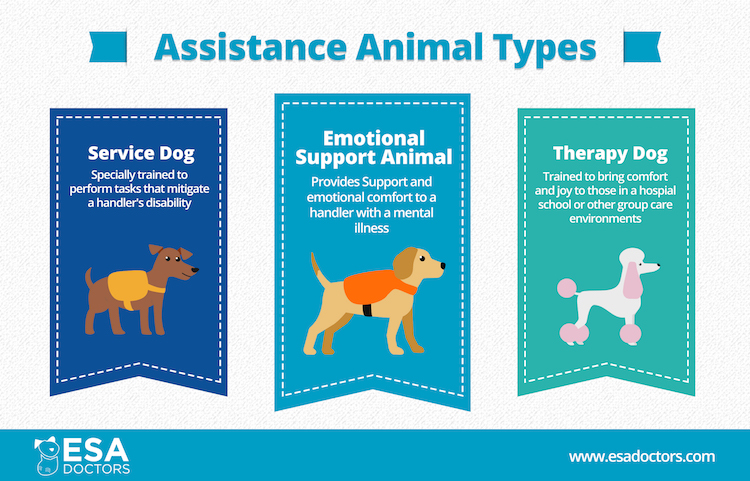Canine Caregivers for Individuals With Autism
Research demonstrates how dogs provide humans with health benefits like decreasing blood pressure and anxiety levels, improving social skills, and providing companionship. However, they give a special kind of care to people with autism.
More and more studies indicate the positive impact dogs make in an autistic individual’s life. Whether the dog is a family pet, an emotional support animal, or a therapy dog, dogs affect an autistic person’s life in both functional and emotional ways. Dogs effectively help people with autism and their caregivers that Autism Speaks—the largest autism advocacy organization in America—includes an entire section on their site devoted to dogs and their benefits for autistic people.
Research has shown that dogs help increase social skills, foster independence, instill confidence, and teach assertiveness over aggression. Children who have a dog tend to introduce themselves more often, engage in asking for information, and are more adept at continuing a conversation.
Because autism occurs on a broad spectrum, each child has a unique set of needs. And dogs can cater to a wide variety of needs. The following are a few ways dogs can help people with autism.

Canine Calming Abilities
An autism assistance dog is formally trained to provide specific tasks that help during an outburst or meltdown for an autistic person and caregiver. Dogs offer a physical, tangible form of emotional support. They can lean up against a child or lie on a child’s lap. An autism assistance dog can even respond to the sound of crying and provide snuggles and comfort until the crying settles down. An autism assistance dog is a formal service dog and is allowed access to public areas not typically accessible to other animals.
How to Get a Service Dog for Autism
In order to obtain an autism service dog, or therapy dog, you must receive a recommendation from a licensed mental health professional or a doctor. This ‘prescription’ takes the form of a letter, which will be written on your health professional’s letterhead and include their license number.
There are no limitations to the breed of dog you can use as your autism service dog. Your ASD can therefore either be a dog you already own, a dog you adopt from a shelter or rescue group, or a dog you receive from a service dog organization. Keep in mind, however, that the dog must be specially trained to perform certain tasks in order to be recognized as a service dog under the Americans with Disabilities Act.
Once trained your child with autism will receive around the clock, vigilant assistance from whichever type of assistance dog you obtain. The person aided and their family are granted comfort and contentment as well, knowing that they are receiving safe, proven treatment.
Certapet wants you to get a service dog as quickly as possible. And we know our services can do just that through our certified telemedicine evaluation and rapidly submitted recommendation letters. If you have additional questions, read these Healthline and Top Dog Tips articles.
How an autistic teenager’s life has been transformed by his support dog
Autism, or autism spectrum disorder, is a bio-neurological developmental disability that generally appears in children before the age of 3. Autism impacts the normal development of the brain in the areas of social interaction, communication skills, and cognitive function.
A child with autism, similar to an adult, typically has difficulties in verbal and non-verbal communication, social interactions, and leisure or play activities.
Those with this disease often suffer from numerous comorbid medical conditions which may include: allergies, asthma, epilepsy, digestive disorders, persistent viral infections, feeding disorders, sensory integration dysfunction, sleeping disorders, and more.
Currently there is no cure for autism, though with early intervention and treatment, the diverse symptoms related to autism can be greatly improved and in some cases completely overcome. The National Autism Association has a lot more information about treating a child or adult with a service dog on their website; read here.